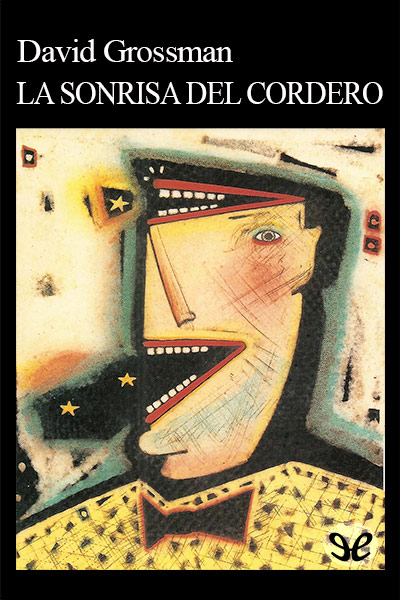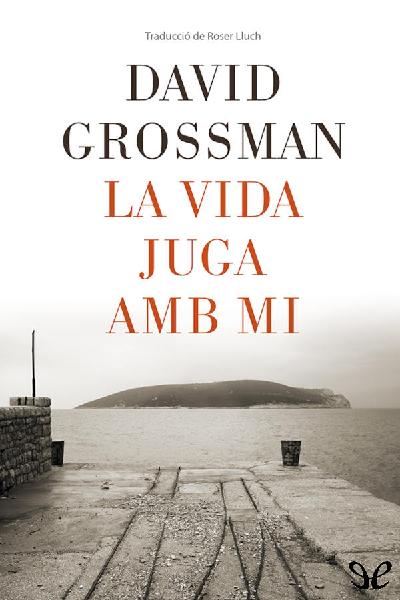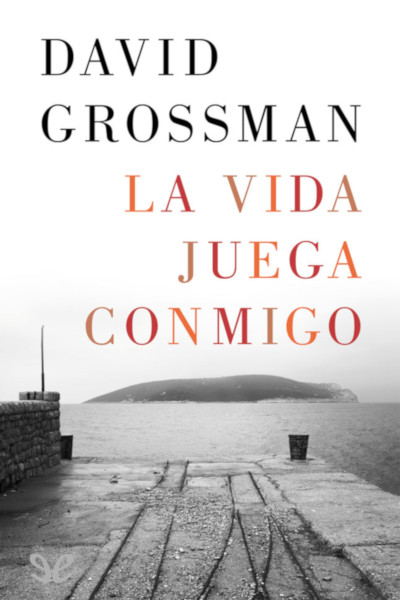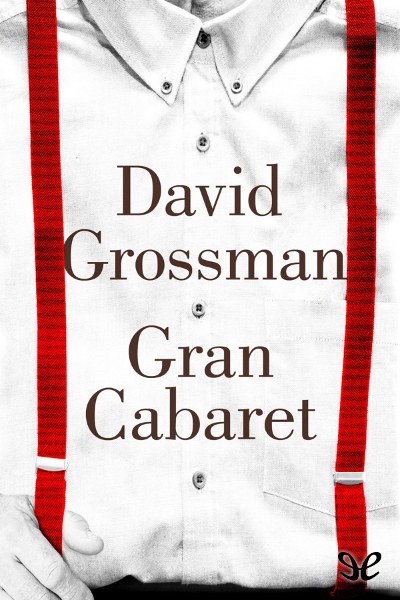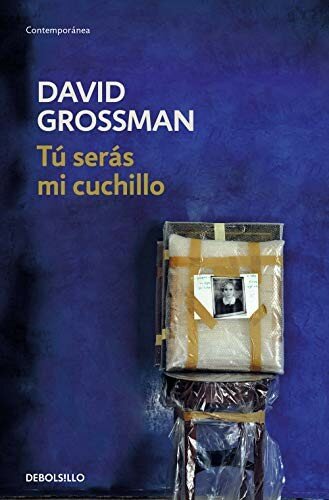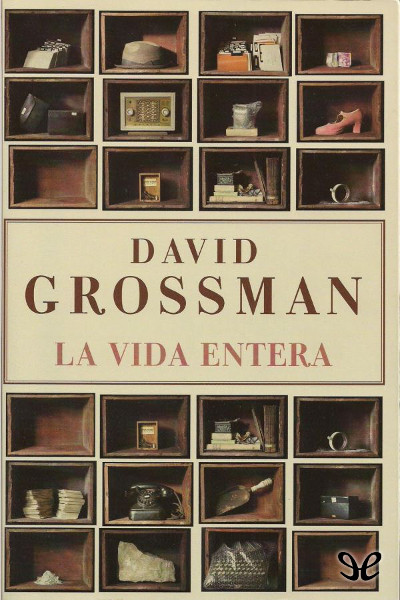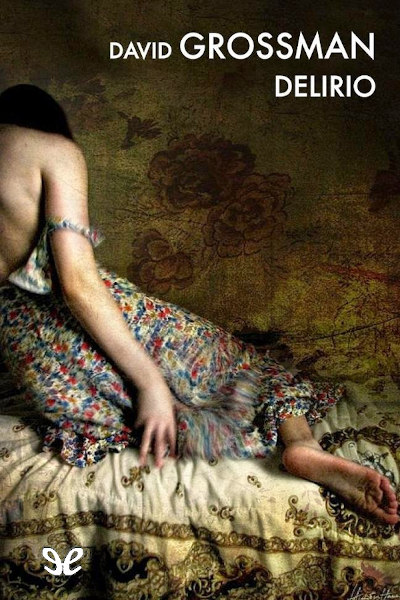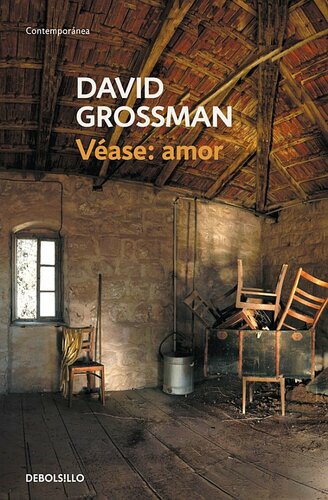oleebook.com
La guerra che non si può vincere de David Grossman
de David Grossman - Género: Italian
Sinopsis
In una situazione che appare senza sbocchi, gli scritti di Grossman cercano di indicare ad arabi ed ebrei quella che sembra l'unica strada percorribile per raggiungere la pace: il dialogo, l'incontro, il riconoscimento del diritto dell'altro.
Libros Recomendados - Relacionados
Reseñas Varias sobre este libro
Grossman è un israeliano illuminato, una cd. "colomba", ma soprattutto è una persona intelligente e in questa raccolta di articoli che vanno dal 1993 al 2002 spiccano la sua lungimiranza e lucidità nell'analizzare gli eventi e i sentimenti dei due popoli costretti a vivere in un abbraccio mortale.
L'analisi che lo scrittore fa delle ragioni dell'altra parte e la critica ad alcuni capi di governo israeliani sono sintomo della profondità e della sua ampiezza di vedute.
Purtroppo dal titolo del libro si comprende il suo pessimismo sulla soluzione del conflitto arabo-israeliano. E l'articolo finale, scritto nell'anniversario dell'Intifada, lo conferma.
Leggere come ci si sente a convivere con la morte e a dover organizzare la propria vita quotidiana in funzione di "cosa potrà accadere oggi" mi ha fatto riflettere. Mi è venuta in mente la famosa poesia di Ungaretti: "si sta come d'autunno sugli alberi le foglie". saggistica5 s Germaine155 2
¿¿Es posible que un libro simultáneamente te de esperanza y te la arranque?? Un análisis sobre una época crítica en la historia de Israel, que hace entender el porque estamos donde estamos. A todo esto no le falta la perspectiva completamente humana de Grossman, de lo que es vivir en un campo de guerra; con la violencia como fondo y la esperanza de paz arraigada en el corazón. ql-en-la-casa3 s Shira210 13 Read
Hier mag ik van mezelf niet zo veel van vinden. Ik vond er wat van en vind er wat van maar dan kom ik weer terug bij de gevoelde onrechtvaardigheid daarvan en draai ik in cirkels. Het is minder vaag dan het nu lijkt. David Grossman doet hier in geschreven artikelen (kunnen artikelen niet-geschreven zijn?) verslag van een periode tussen 1993 (de Oslo-akkoorden) en 2002 (begin van het bouwen van de muur?). Een periode van de Intifada, geweld, tegen-geweld, wanhoop wanhoop wanhoop. En ik weet niet of ik dit nu goed benoem want ik weet de precieze loop van het Palesteins-Israëlische conflict niet.
Wat er was tijdens het lezen; zwaarte. Niet leuk om te lezen want het komt nergens op uit. Het is één brok niksigheid met David Grossman als onze gids (hij benadrukt geen journalist te zijn). En - maar - natuurlijk is het niet niks! Er leven daar mensen in angst, in woede, in wanhoop en ik laat maar even in het midden wie wat voelt.
David Grossman probeert hier iets te rijmen. Oppert suggestie na suggestie, zet uiteen en nog meer en nog en nog. Het is herhalend want de situatie is herhalend (dat dat niet persé enerverend lezen is, dat moet dan maar).
Tja. Ik zou graag iets van een Palestijn(se) lezen hierover, is misschien waar ik op uit kom (en laat er een boek zijn wat denk ik een mooie tegenganger is: Palestinian Walks van Raja Shehadeh (al weet ik nu nog niet in hoeverre tegenhanger, volgens mij zijn beide schrijvers heel bewust met de menselijkheid van elkaar bezig en de gevoelde nutteloosheid van het geweld en machtsvertoon (dat is in elk geval grotendeels zo bij Grossman. En toch ben ik een beetje kritisch op hem, soms, door wat of door hoe hij het schrijft. Ik snap dat hij een seculiere Joodse Israëliër is (en ik kan niet beweren te weten wat dat precies voor betekenis met zich meedraagt (voor hem), niet echt echt), die strijdt voor vrede voor beide partijen. En hier komt waarschijnlijk mijn gebrek aan kennis niet goed van pas en zou het kunnen dat ik hem zeer vals beticht want is het niet terecht vanuit zijn situatie, vanuit de situatie van de Israëlische Joden? Wat is terecht? Terecht dat zij een sterke legermacht hebben? Dat Israel (met geweld?) ingrijpt op zelfmoordaanslagen? (Dat ze bang zijn?) Dat hij toch echt schrijft, volgens mij echt (ik houd een slag om de arm maar zo las ik het), dat geweld of in elk geval een tegenactie (en of die gewelddadig zijn wordt een beetje in het midden gelaten) noemt als vanzelfsprekendheid (moet hij dan pacifistisch zijn van mij? Is hij dat niet? (En nog een keer, moet dat?)) Dat Palestijnse vluchtelingen in het buitenland niet terug mogen keren (als ze willen) want het zijn er zo zes miljoen (dacht ik) en dan zouden de Joden een minderheid zijn in 'eigen land'. Ja hier ben ik cynich over. Of het gerechtvaardigd cynisme is weet ik niet. Vast niet alleen maar of misschien ook helemaal niet. Sorry, in dat geval. Ik snap dat Grossman echt schrijft vanuit en met de beste intenties, dat hij echt wanhopig en radeloos en boos is, ook absoluut op de Israëlische overheid en alle fanatici onder de Israëlische bevolking. Dat alles is hij ook richting de Palestijnen, of eigenlijk met name, de fanatici, op Arafat, Hamas. Hij is het op de onmogelijkheid van 'de mens' daar, en eigenlijk wijst hij soort van iedereen aan maar nadrukkelijker diegenen die menen met (gewelddadig) machtsvertoon tot een oplossing te komen. Wat wil ik nu zeggen? Dat ik meegesleept ben in het denken hierover waarvan je je af kunt vragen heeft het nut? Ja. Denk ik. Al is het maar omdat onderliggend aan al Grossmans schrijven, een boodschap is aan iedereen (ook wel bovenliggend want hij zegt het expliciet)). Om na te denken wat geweld nu eigenlijk bereikt en waar het de mens laat. Wordt zij dan achtergelaten in een leegte zonder menselijkheid? Onmogelijk om terug te keren?).
(Ik voel enige paranoia betreft het delen van bovenstaande, op internet. Terwijl ik het laat staan ga ik nadenken of het realistische paranoia is - maar eerst ga ik slapen.)non-fiction ook-zeker-iets-filosofisch-denk-ik2 s Mark71 8
--from 2005
I know that something in me is dying. I no longer have that spark inside that life here always ignited in me.? Israeli writer David Grossman [1]???Over the past year, I have had exchanges with a few Jewish acquaintances who say that my presentation of my experiences in the West Bank and Gaza Strip is problematic because I dont deal adequately with the context. That context, they urge, is Israeli insecurity caused by suicide bombers and the surrounding malevolent Arab states. I reply, usually patiently, I do talk about context. The context of suicide bombers has to be seen vis-à-vis the 37 year-old Israeli military occupation of the West Bank and Gaza Strip. For these Jewish interlocutors of mine, the context is narrower: Israel does what it does in the Palestinian territories to guarantee its security, which is under attack by Palestinians. In their eyes, I should talk more about this Palestinian propensity to harm Jews.??
The most striking fact of David Grossmans Death as a Way of Life, his collection of articles from the post-Oslo period of seeming promise of peace to the second Palestinian intifada, is the gradually increasingly gloom as we travel from 1993 to 2002.
My sense is that Grossman, a well-known Israeli novelist, would instinctively prefer to be in his study, writing his books or studying the immemorial texts of Jewish tradition. He seems a classic incarnation of the Jewish intellectual, as he describes one of his lifes joys:??
As on every Tuesday, I studied with my hevruta. Its two friends, a man and a woman, with whom I study Talmud, Bible, and also Kafka and Agnon. The hevruta is an ancient Jewish institution. Its a way of studying together and sharpening the intellect through debate and disputation When we study, I become intimately connected to the millennia-long chain of Jewish thinkers and creators. I reach down into the foundations of the Hebrew language and Jewish thought. I suddenly understand the code hidden in the deep structure of Israels social and political behavior today. In the midst of confusion and the loss that surrounds me, I unexpectedly feel I belong. [2]??
Yet, because of that confusion and loss, Grossman cannot shut his ears to the suffering around him. He confronts the suffering immediately around him, in the form of Israeli Jewish civilians being maimed and killed by Palestinian suicide bombers. But he also has the ability and the will to be attentive to the suffering that is happening a little further away, that which has been meted out to the Palestinians under Israeli military occupation, throughout during the period of Oslos much trumpeted peace process. Back in 1998, he wrote, The Israeli eye is already trained to skip over the small items in the newspaper: the Palestinian babies dying at roadblocks, the children fainting from thirst in the refugee camps because Israeli officials control the water supply, thousands of families whose homes are bulldozed on the grounds of being illegal construction. Who can face up to all this nauseating detail? Who can acknowledge that this is actually happening? That it is really happening to us? [3] This book is Grossmans effort to be faithful to what is actually happening, not only to the Israelis but to the Palestinians. ??
As I was reading Grossman, a secular Jew, I was reminded of a message Vietnamese Buddhist Thich Nhat Hanh has urged on his : A true peacemaker needs to avoid taking sides and instead tell Side A about the suffering of Side B, and tell Side B of the suffering of Side A. In Death as a Way of Life, the reader discovers Grossmans obvious sympathy for his own peoples suffering and the misery of the Palestinians. He sees clearly that the principal context is the Israeli occupation of Palestinian land: Who today has the strength to recall the beginning, the root of the matter, the circumstances, the fact that this is about occupation and oppression, about retaliation and counterretaliation, about a vicious cycle of blood, about two peoples who are turning corrupt and violent, and finally insane? [4] If one is not a real radical, in the sense of getting at this root, which is the occupation, the spiral of violence will continue. Earlier, Grossman reveals his ability to do the unthinkable, as far as many Israeli Jews might be concerned, when he identifies with the Palestinians resistance to Israels military control and onslaughts. He elaborates: [I]f you oppress a nation for thirty-five years, humiliate its leader, abuse its people and offer them no hope, that nation will seek to protect itself, however it can. Would any of us act differently than the Palestinians if we faced the same situation? Didnt we, in fact, do exactly the same during the years we spent, at different times in our history, under occupation and tyranny? [5]??
Nevertheless, Grossman is too rooted in reality to romanticize either the Palestinian leadership or some Palestinians on the ground: It is depressing to think that we are conducting a dialogue of peace with people who have among them spiritual-religious shepherds who enthusiastically send young people to their deaths in order to kill Jews. I cannot comprehend exactly what kind of God these people worship. What God can be proud that His people slaughter little children on their way to a holiday party? [6] the Brazilian Archbishop Helder Camara who spoke of the escalating spiral of violence (from institutionalized injustice to violent revolt against the injustice to violent repression to put down the revolt), [7] Grossman is critical not only of the primary violence of the occupation but also the Palestinian choice to use the revolt of suicide bombings against Israeli civilians: Without minimizing Israels responsibility for the deterioration and without ignoring the immense suffering that Israel has inflicted on the Palestinians during thirty-five years of occupation, I feel today that it is the Palestinians who have brought about the current intolerable escalation. It is the outcome of their choice to use the weapons of suicide bombings against Israeli civilians. [8]??
Perhaps other commentators, such as Michael Lerner, [9] Grossman would be an advocate that the Palestinians must make a principled commitment to nonviolent resistance to the Israeli occupation and renounce suicide bombing: It is morally the right thing to do, and practically, it is the strategic thing to do. However, it must be said that the experience of many involved in the International Solidarity Movement, with its explicit commitment to nonviolent direct action, is that the Israel Defense Forces do not suddenly become friendly, dialogic, and gladdened that we have renounced violence and are attempting to practice the way of Gandhi. [10] Even when nonviolent, activists are seen as terrorists because they oppose the occupation. Its a classic case of youre damned if you use violence, and youre dammned if you use nonviolence.
??Still, Grossman also offers a viewpoint that will surely rankle some of his fellow Israelis and, by extension, some American Jews. Inasmuch as Grossman opposes Palestinian demonization of Israel and Israelis, he doesnt buy into a presumed moral superiority of those Israelis who insist that the only obstacle to peace is those intransigent Palestinians. After the Israelis intercepted a ship of arms headed to Gaza, Grossman comments with sarcasm: ??
Now well have the celebrations, the glee of we told you so: We told you that the Palestinians dont keep agreements (un us, of course, who honor all agreements). We told you that they will do anything to obtain offensive weapons (whereas we only aim daffodils at Arafats window in Ramallah). We told you that theres no one to talk to, so wed better keep tightening the noose around their necks (that way well definitely bring about a profound change in Palestinian nature, so that theyll agree to conditions). We told you that Arafat is, in fact, bin Laden himself (yet we are all disciples of the Dalai Lama).[11]
??In an address to Israeli Prime Minister Ariel Sharon (to whom Grossman refers as Caesar), Grossman scorns and mocks Sharons arrogance and blindness: You will compel our enemies to love us no matter how much we oppress them. You will rid yourself of their ruler and put another, deferential and obedient, in his pace. Then their hearts will, in the blink of an eye, come to love us, resign themselves to our mistreatment of them, and even declare it just.[12] Sharon believes that force will compel the Palestinians to submit, which is his notion of peace. However, for each home that is bulldozed in Gaza, for each adult Palestinian male humiliated at a checkpoint, for each child killed by the Israeli Army, resistanceof some kindwill be undoubtedly be generated. Caesar believes that his victims should love and applaud him; the tendency of the powerful to succumb to delusion is one lesson to be derived from a study of history.??
Grossmans articles are short, clear, and compelling. Beyond his observations and analyses of Israel/Palestine, I was taken with his reflections on Germany and Pope John Paul IIs visit to Israel, as well as the novelists own seven-day diary he kept for the French journal, Libération. I admire his willingness to speak out and, hopefully, his rootedness in Israeli society may help some readers ask more critical questions about Israels intentions and practices. Any reader will disagree with some of Grossmans emphases and judgments; for example, I wonder how he could accept the widespread belief that Arafat rejected Ehud Baraks generous offer in 2000, which allegedly led to the next wave of violence.[13] Read Grossman, though, to find a Jew of conscience grappling with some of the deepest issues in contemporary Jewish life.[14]
??In the aftermath of Arafats death, the debate over disengagement from Gaza, and the Palestinian elections, some speak with optimism, as if there is a promise of a genuine breakthrough. In a recent column, analyst Kathleen Christison quotes Israeli journalist Amira Hass as saying, "There's nothing wrong with wanting to be optimistic The problem arises when optimism acts as an anesthetic, and when the optimists make do with talk and take no interest in bulldozers," the bulldozers, Christison goes on to point out, that are still building the separation wall through Palestinian territories, that are still demolishing the homes of innocent Palestinians, that are still clearing Palestinian land in order to build more Israeli settlements and more roads that only Israelis may drive on.[15] ??
Grossman ends his book far from optimism. In fact, his last words stand worthy of our meditation and, more significantly, our action:??
Two years have gone by and there is no hope. The situation can be summed up in several ways. I choose to do so by citing two facts that stood out in the reports of the last month. The first: According to data provided by UN agencies, ore than a quarter of Palestinian children now suffer from malnutrition as a result of the situation. The second: Israeli schoolchildren will soon be given special classes in early identification and detection to suicide bombers Israelis and Palestinians who refuse to see the connection between these two facts ensure that for many years to come we will all be each others hostages, agents of gratuitous and pointless death.[16]??
As long as Americans do not grasp the urgency of that connection and its broader context, we can look forward to another decade of escalating hostility and predictable horror.??
Notes??
[1] David Grossman, Death as a Way of Life: Israel Ten Years after Oslo (New York: Farrar, Straus & Giroux, 2003), 45.
?[2] Grossman, Death as a Way of Life, 144. Compare the conviction of Israeli novelist Aharon Appelfeld: I learned Hebrew by dint of much effort. It is a difficult language, severe and ascetic. Its ancient basis is the proverb from the Mishna: Silence is a fence for wisdom. If it werent for Hebrew, I doubt whether I would have found my way to Judaism. Hebrew offered me the heart of the Jewish myth, its way of thinking and its beliefs from the days of the Bible to Agnon. This is a thick strand of five thousand years of Jewish creativity, with all its rises and falls: the poetic language of the Bible, the juridical language of the Talmud, and the mystical language of the Kabala. This richness is sometimes difficult to cope with. Quoted in Philip Roth, Shop Talk: A Writer and His Colleagues and Their Work (New York: Houghton Mifflin, 2001), 31.
?[3] Grossman, Death as a Way of Life, 44. For reports from an Israeli journalist who has gone to live amid the Palestinians, see Amira Hass, Drinking the Sea at Gaza: Days and Nights in a Land under Siege (New York: Henry Holt, 1999) and Amira Hass, Reporting from Ramallah: An Israeli Journalist in an Occupied Land (Los Angeles: Semiotext(e), 2003).?
[4] Grossman, Death as a Way of Life, 158.
?[5] Ibid., 155-156.
?[6] Ibid., 33.
?[7] Grossman: For more than ten months now, the two sides have been in a mad, dizzying spiral of violence. They dont know how to stop. In the lunatic logic of this conflict it is possible, of course, to justify every murder by citing the murder that preceded it. The cruel code of the Middle East states that if you have not responded with full force to the blow you suffered, the other side will interpret it as weakness and will strike at you again even more painfully. The result is that each side is condemned to strike out at its antagonist, and then cringe in anticipation of the counterblow. Ibid., 132.?
[8] Ibid., 165.
?[9] See Lerners editorials at www.tikkun.org.
?[10] See Josie Sandercock, et al., ed., Peace under Fire: Israel/Palestine and the International Solidarity Movement ( London: Verso, 2004).
?[11] Ibid., 157.
?[12] Ibid., 159.
?[13] For a critical dissection of that offer, see Tanya Reinhart, Israel/Palestine: How to End the War of 1948 ( (New York: Seven Stories Press, 2002).
?[14] For my of Israeli poet Aharon Shabtai and Israeli dissidents, see http://www.ctsastl.org/site/weblog.ph... Kathleen Christison, Optimism vs. Reality: Struggling for Justice in Palestine, Counterpunch, 19-20 February 2005: http://www.counterpunch.org/christiso... Grossman, Death as a Way of Life, 188. Doug91 2
I bought this in the book shop of Yad Vesham, Jerusalem's holocaust museum, largely because I thought it would be a good primer on the Israeli-Palestinian peace process of the 90s, the details of which are complicated but essential for understanding the current situation. On that front, Grossman's book got the job done.
Grossman's an Israeli peacenik, and these are his articles and essays from 93- 03. It was interesting to see the emotional peaks and valleys throughout the late 90s. Bravely, he included everything that he wrote, much of it was either wrong or simply looks naive with the benefit of hindsight.
But even without hindsight, his analysis is annoyingly soft and hippyish. He wastes much ink on collective souls of entire nations of people and the psychology of the leaders. He questions Rabin's ability to psychologically transform himself, and he in part blames the breakdown in Dayton to Barak being too abrasive during the negotiations. In fact, both Rabin and Barak were uniquely qualified to move farther than any Israeli leader before or since because of their badass reputations.
Grossman's concerns seem mystifyingly naive when the Israeli left has been completely demoralized and discredited, and when Hamas controls Gaza. Maybe we should all just hold hands?
1 Justin46
David Grossman can write. His prose is simply fantastic, and he is able to do dark humor, persuasion, compassion and anger with grace. He writes in a way that makes the reader want more, even when the subject is quite heavy. This is probably the best book I have read espousing the "two-state solution" for Israel and Palestine.
There is so much more I'd to say about this book - and, in writing this review, I've written and erased several paragraphs worth of my thoughts. The problem is that the issues surrounding Israel/Palestine are ones that I can't seem to talk about without making some people very, very angry. I'm an American, who has only visited Israel (not lived there), and I'm not Jewish. So what do I know? Who am I to have an opinion on this?
So I will leave it to Grossman, a Jew who was born in Israel, lives in Israel, whose own son was killed as a member of the Israeli military, to have an opinion on this. And I will urge you to read his opinion, to consider it carefully, and to not give up hope that there can be peace in Israel and Palestine. Grossman believes it. I believe him.essays1 Jennifer83
David Grossman is unique among Israeli novelists in that his most compelling books are non-fiction expressions of his political activism. His controlled obsession is the Middle East peace process, and he examines the parallel but disparate conditions of Israeli arab and Palestinian arab, going so far as to conduct interviews to gauge the thoughts and feelings of non-Jews in Israel and the disputed territories.
Grossman first came to my attention in a magazine article about Prime Minister Ehud Olmert and the 2006 invasion of Lebanon. Grossman, Amos Oz and other Israeli writers were deeply critical of the degree of Israeli aggression. The sad footnote to the article is that Grossman's son, then doing his mandatory military service, was then killed during the invasion. jewish-holocaust-israel1 Theresa746
"The battle lines today are drawn not between Israelis and Palestinians but rather between those who are willing to come to terms with despair and those who wish to turn it into a way of life." Lots of good thoughts in these essays.1 Ben400 39
As in a fairy tale, as in a nightmare: Hush...the entire kingdom has fallen asleep.
That is, the people are awake. They move, produce sounds, travel, enjoy themselves, do business. Lots of activity, lots of noise.
Yet underneath all that, the same gnawing corrosion of the heart, the feeling that something here is hollow, that its movement is but inertial, that it is disconnected, excised from its essence.
We've been so wonderful at putting ourselves to sleep, at suspending our understanding and our will, that even those who oppose the government's policy don't have the strength to really do anything against it.
And so it happens that, despite the conspicuous void in this country's leadership, the opposition is unable to produce a single person who can respond to the profound need for restoration, someone who could sweep along the masses simply by, finally, offering them anything, a way, a chance, an awakening.
Perhaps Israel is now paying the heavy price of too many years of stubbornness, of opposition to compromise and refusal to understand reality as it is. Perhaps something really horrible has happened to us. Perhaps the peace process came to us a bit too late.
Because when you keep rejecting something for so long, when you so much don't want something, you are liable, in the end, not to want anything. In other words, you are liable to lose your will itself. So the result is a nation that has spent years investing huge amounts of energy in not wanting and has now reached a state in which it is so passive that anything can be inflicted upon it, anything at all. Abigail G506 2
This book was very sad to me. At the end I was left with a bit of a hopeless feeling in regards to the Palistinian Israeli conflict. Even though this book was written well over a decade ago it is still as applicable as if it were written yesterday. Many good points were made by the author including, that many common people don't this happening, and that hatred and war seems to have become embedded in the identity of the peoples involved. The hope that was expressed for the future seems even more unreachable in my eyes because so much more time has passed and it hasn't changed for the better yet. Marco Conte54
Un libro piuttosto inutile. Si può riassumere in un'unica esortazione: "Volemosebbène". Lodevole, ma da uno scrittore come Grossmann mi sarei aspettato almeno un briciolo di analisi storico / politico / internazionale che nel testo è pressoché assente. Il massimo dell'astrazione viene raggiunta nel paragone (del tutto fuori luogo) con la questione nordirlandese. Boh! Molly Lane132 2
actually this was very thought provoking and interesting to read. it was refreshing to see an Israeli perspective this and i wonder what the impact of this book was in Israel. I really enjoyed reading this and would love to read one from a Palestinian perspective as well Yael327 30
Well, that was depressing Diana586 27
Una raccolta di articoli scritti da Grossman sulla guerra arabo israeliana, ma soprattutto un affresco di come vive la gente comune in una situazione perennemente in bilico, con il terrore delle bombe, la speranza di una pace che non arriva, le mille delusioni inflitte da governanti troppo concentrati su sè stessi e sull'oggi piuttosto che sul futuro, e soprattutto sul costo umano che i loro popoli pagano ogni giorno...
L'aspetto più terribile di questi articoli è il fatto che potrebbero essere stati datati 20 anni fa, o oggi e purtroppo non farebbe una grande differenza.
Uno degli articoli che più mi ha colpito è quello che racconta la visita di Papa Giovanni Paolo II in Israele, molto toccante e profondo.2010 giornalistico guerra ...more Maryc287 25 Read
A series of essays by Israeli writer David Grossman:
"...all civilized, fair-minded persons must ask themselves serious questions about the Holocaust and what permitted it to take place. They are universal questions about the relations between human beings, about attitudes to the foreign, the different, and the weak." and later some wisdom shared from former enemies in the Irish "troubles" with Israeli and Palestinian peace supporters, " There was a moment, when I simply understood that this war cannot be won." It leaves the reader with a glimmer of hope.palestine-israel Ben68 5
A good read. The book bundles a collection of essays related to the israeli-palestine conflict in the wake of the Oslo accords. 10 years are spanned by the essays and the essays are presented in a chronological order. With every spark of hope brought up in an essay, the next essay squashes the spark. Hope is fading over the chapters...
Without mingling in the debate, i second the opinion of another reviewer: i believe grossman (unfortunately). Mimonni422 24
Questo libro lascia colmi di rabbia. Tutto quello che lo scrittore propone lo si percepisce come parole al vento.
Speranze sembrano a volte esserci, ma la via duscita è oltre lorizzonte ed è particolarmente complicata e ricca di sfumature. Ormai la guerra è purtroppo diventata il modo di essere per gli israeliani e i palestinesi. E la loro quotidianità che lo vogliano o no i singoli. Non bastano le menti più lucide come quella di Grossmann a indicare la strada.2009 bookcrossing bookring Alex325 11
What can I say? David Grossman is a liberal zionist by definition therefore I don't agree with him on many views.
However the essays contained in this collection were extremely well written and moving and gave great insight into "the other" side of the debate.
This is NOT a good book for someone without decent background knowledge of Israel/Palestine as it's super biased.palestine Matthew60 2
Thought provoking and well written. The book was written 10 years ago when the region was more volatile- is interesting to see how different the atmosphere in Israel is today from the situation 10 years ago. Jared172 3
3.5/5
Before you read a word of David Grossman's work on the Israeli/Palestinian conflict, familiarize yourself with the French Existentialists (chiefly Camus and Sartre). Otherwise, I've got nothing. amanda12 4
Recommended by Rabbi....
Compelling essays on the events in Israeli politics from September 1993 through December 2003. Lauren1,427 87
Autor del comentario:
=================================
